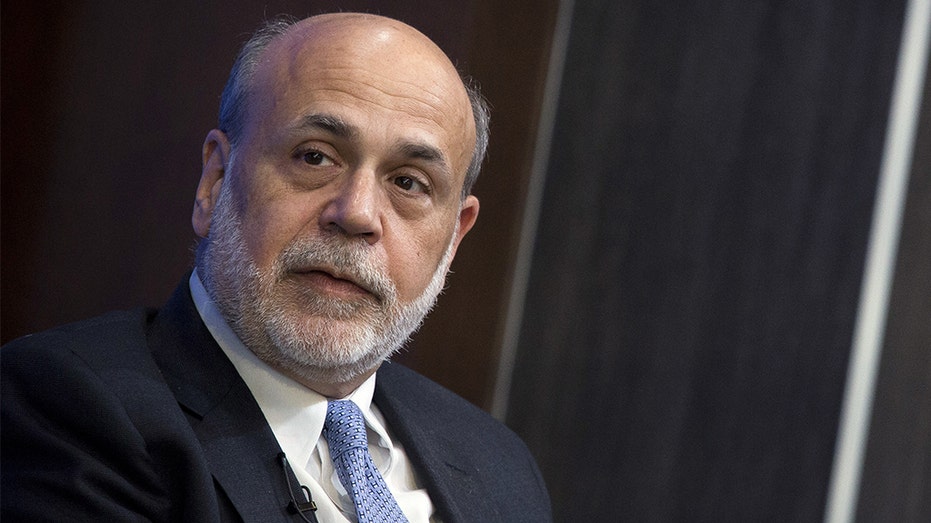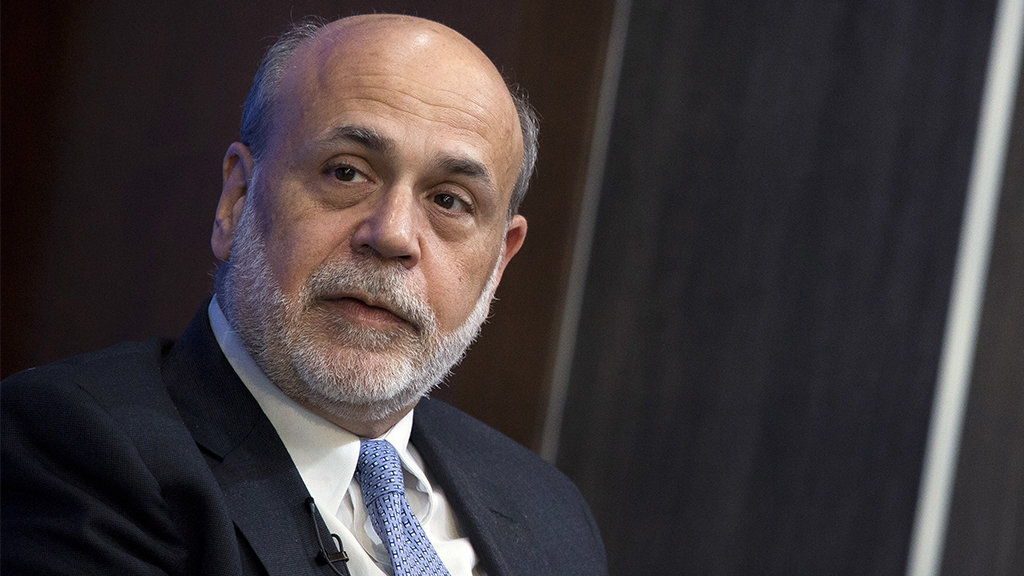Former Fed chair warns US economy faces stagflation after central bank missed inflation
US economy faces growing risk of 1970s-style stagflation, Ben Bernanke says
Federal Reserve raising rates into a ‘slowing economy’: Expert
Oxbow Advisors managing partner Ted Oakley discusses the Federal Reserve’s half-point rate hike.
Former Federal Reserve Chairman Ben Bernanke accused the current U.S. central bank leaders of waiting too long to address surging inflation, warning the economy faces a period of stagflation for the first time since the 1970s as a result.
"The forward guidance, I think overall, on the margin, slowed the response of the Fed to the inflation problem," Bernanke said in a Monday interview with CNBC. "I think, in retrospect, yes, it was a mistake and I think they agree it was a mistake."
HOW THE FEDERAL RESERVE MISSED THE MARK ON SURGING INFLATION
Fed Chairman Jerome Powell and his colleagues initially operated under the assumption that higher inflation was narrowly related to the COVID-19 pandemic, and that once virus cases started to decline, prices would stabilize too.

Ben Bernanke, former chairman of the Federal Reserve, speaks during an event with Yi Gang, deputy governor of the People's Bank of China (PBOC), not pictured, at the Brookings Institution in Washington, D.C., U.S., on Thursday, April 14, 2016. (Photographer: Drew Angerer/Bloomberg via Getty Images / Getty Images)
But the root cause of inflation was multi-pronged, with higher prices stemming from supply chain disruptions, high consumer demand, the Russian war in Ukraine and trillions in government spending that went directly into the pockets of Americans. When inflation did not fall along with virus cases – and once wages began rapidly rising – the Fed was forced to switch course.
Bernanke – who led the Fed from 2006 to 2013, steering the economy through the worst of the 2008 financial crisis – said he understands why Powell chose to wait to confront the inflation spike, calling the decision "complicated." Fed officials were wary of repeating the "taper tantrum" of 2013, when Bernanke's mere suggestion of tightening monetary policy triggered a spike in bond yields, causing big losses for their holders.
At the same time, the former Fed head said the outcome of such a slow policy response could be a poor economic performance.
"Even under the benign scenario, we should have a slowing economy," Bernanke told the New York Times during a separate interview. "And inflation’s still too high but coming down. So there should be a period in the next year or two where growth is low, unemployment is at least up a little bit and inflation is still high. So you could call that stagflation."
Stagflation is the combination of economic stagnation and high inflation, characterized by soaring consumer prices as well as high unemployment. The phenomenon ravaged the U.S. economy in the 1970s and early 1980s, as spiking oil prices, rising unemployment and easy monetary policy pushed the consumer price index as high as 14.8% in 1980, forcing Fed policymakers to raise interest rates to nearly 20% that year.

Federal Reserve Chair Jerome Powell arrives to speak at a news conference, Tuesday, March 3, 2020, to discuss an announcement from the Federal Open Market Committee, in Washington. ((AP Photo/Jacquelyn Martin) / AP Newsroom)
Consumer prices jumped 8.3% in April on an annual basis, close to a 40-year high, and are expected to remain elevated in coming months. As a result, the Fed is embarking on its most aggressive course to tighten policy in decades, raising rates by a half-point earlier this month and signaling that similarly sized hikes are on the table at coming meetings.
There are growing fears that the Fed will trigger a recession because hiking interest rates tends to create higher rates on consumer and business loans, which slows the economy by forcing employers to cut back on spending. Bank of America, as well as Fannie Mae and Deutsche Bank, are among the Wall Street firms forecasting a downturn in the next two years.
CLICK HERE TO READ MORE ON FOX BUSINESS
Powell has acknowledged there could be some "pain associated" with reducing inflation and curbing demand but pushed back against the notion of an impending recession, identifying the labor market and strong consumer spending as bright spots in the economy. Still, he has warned that a soft landing – the sweet spot between cooling demand without crushing it and triggering a recession – is not assured.
"It will be challenging, it won’t be easy. No one here thinks that it will be easy. Nonetheless, we think there are pathways... for us to get there," Powell said during an interview last week with Marketplace.





















